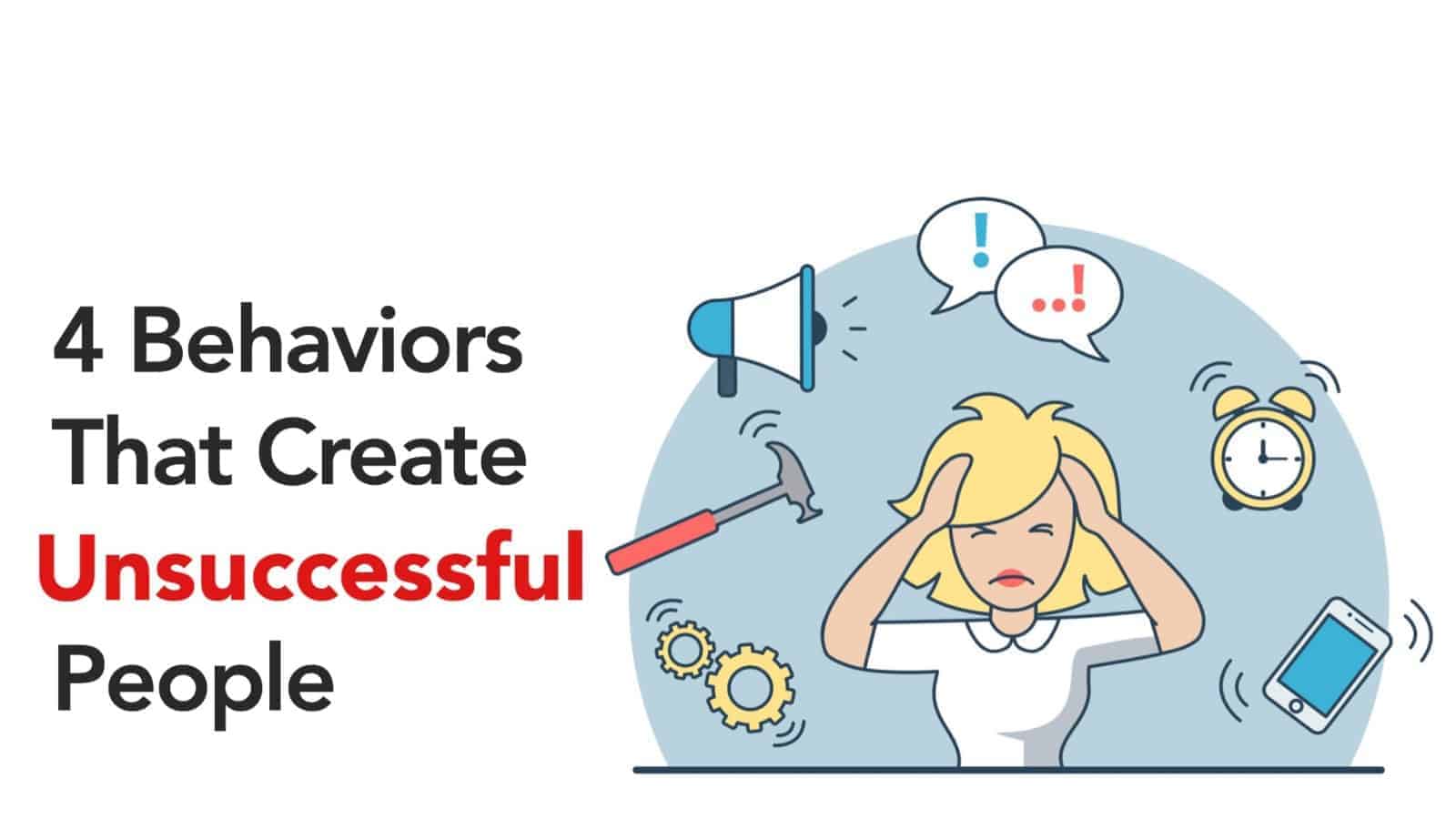Why do some people thrive while others are unsuccessful?
“It’s supposed to be hard. If it wasn’t hard, everyone would do it. The ‘hard’ is what makes it great.” – Jimmy Dugan (Tom Hanks) in A League of Their Own
First, let us acknowledge that the word “success” is wholly subjective – it means different things to different people.
Many pop culture or success publications show what success is “supposed” to look like: a big house, slick car, fat bank account, or some other materialistic and elitist POV. There’s just one problem: these things don’t produce long-lasting happiness.
For the sake of this article, we’re going to define success as: Achieving personal and professional results which produce high levels of individual happiness.
Success is happiness – and happiness is success. In contrast, you cannot be one without the other. Going further, you can think of unhappiness as being unsuccessful, and vice-versa.
Lack of success (or lack of happiness) is the result of poor life choices and self-defeating attitudes, behaviors, and beliefs. Behaviors are the manifestation of attitudes, beliefs, and choices.
Here are four behaviors that create unsuccessful people:
1. Unsuccessful People Often Have a Lack of Self-Control
Self-control is “the ability to subdue our impulses in order to achieve longer-term goals.” Also called self-discipline, self-control is crucial to success.
Self-control is what enables you to keep grinding away, no matter how uncomfortable the situation is. Instead of responding to immediate impulses (e.g., immediate gratification), we plan, evaluate alternative actions, and avoid doing things we will regret later.
When self-control is lacking, we may be tempted to overspend, eat too much, act lazy, and avoid doing the hard but necessary things.
Tips:
– Self-control is a depleting resource. Manage your energy accordingly.
– Don’t “fight” recurring impulses. Just let them pass!
– Directing your attention onto something else (see below) is an effective means of establishing self-control.
– Self-control becomes much easier the more you practice.
2. Lack of Attention
The founder of modern psychology, William James, said it best:
“The faculty of voluntarily bringing back a wandering attention, over and over again, is the very root of judgment, character, and will … An education which should improve this faculty would be the education par excellence.”
Attention is taking possession of one’s mind and directing it onto the task-at-hand. It is ignoring distractions, whether they surface externally (the environment) or internally (mindless chatter, emotions.)
James believed as many experts do today, that attention is vital to life satisfaction. Accomplishing difficult aspirations demands single-pointed concentration. People who fail at what they set out to do often suffer from poor attention skills.
Tips:
– Accept that concentration is under your control.
– Expect your brain to fight and tempt you with distractions.
– Direct your attention to the task at hand.
– When your mind wanders (and it will), gently bring it back to the task.
– Repeat, repeat, repeat!
3. Lack of Direction Can Cause Unsuccessful People
Would you go on a cross-country trip without a GPS or some sort of map? Of course not! So why would you live day-to-day without a sense of direction? Why would you be satisfied to stumble aimlessly through life?
While it doesn’t make sense, many of us never attempt to chart out our life’s path. To be clear, “having direction” isn’t meticulous planning – this works for some people, but many find it tedious and boring (agreed!)
Having direction just means having a vision of what you want your life to look like, keeping this vision in mind, and doing what is necessary to achieve it.
Tips:
– Navigating life is analogous to navigating traffic: alternate routes and switching lanes – all while keeping the destination in mind.
– Many (most?) people lack direction in one or more areas of their life. There’s no shame in admitting such.
– Start simple: list the things you feel you can execute better and – one-by-one – come up with an open-ended plan to improve.
– Don’t overwhelm yourself with too much self-improvement. Many people quit because of this.
4. Lack of Ambition, Passion, and Purpose
Ambition is that “fire in your belly” feeling. It’s why you get to work early and stay late. In other words, it’s your purpose.
People who have a strong sense of purpose do what they love and love what they do. They are the first ones in the door and the last ones to leave. To work is to play. When things get hard, they remember their “Why.”
If you don’t have a “Why” you can’t have a “How.” If you don’t have a “How,” you are like a ship without a rudder, drifting about aimlessly in the beautiful, vast, mystic ocean that is life.
Tips:
– Similar to direction, many people lack ambition, passion, and purpose in their lives. Do not chastise yourself.
– Ambition, passion, and purpose can be – and ideally, is – your work. But it doesn’t have to be!
– Many people discover that serving others in some capacity (e.g., volunteering, tutoring, etc.) is the key to unlocking all three.
– It is NEVER too late to discover your ambition, passion, and purpose.
– Once found, measure them against every pertinent life decision that must be made.



















